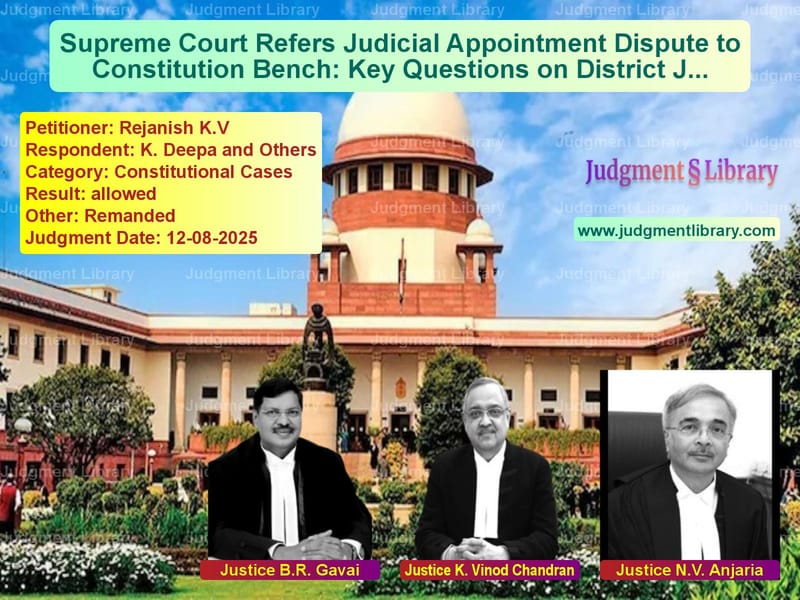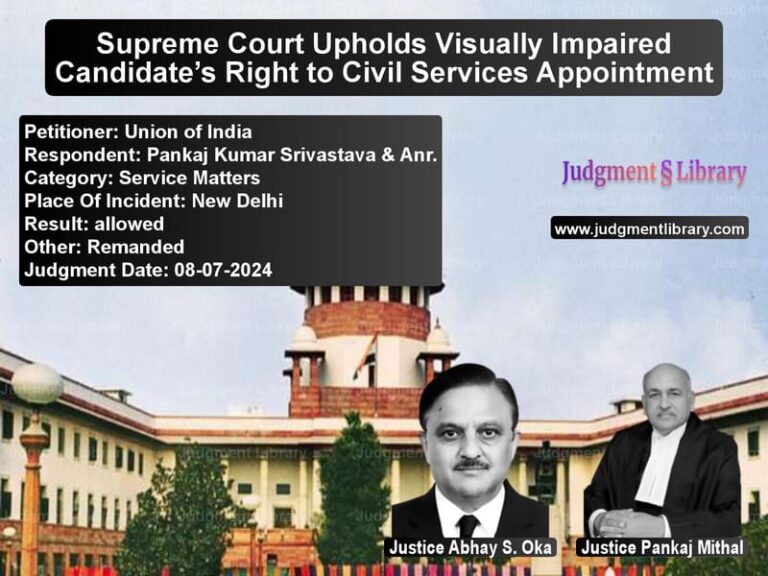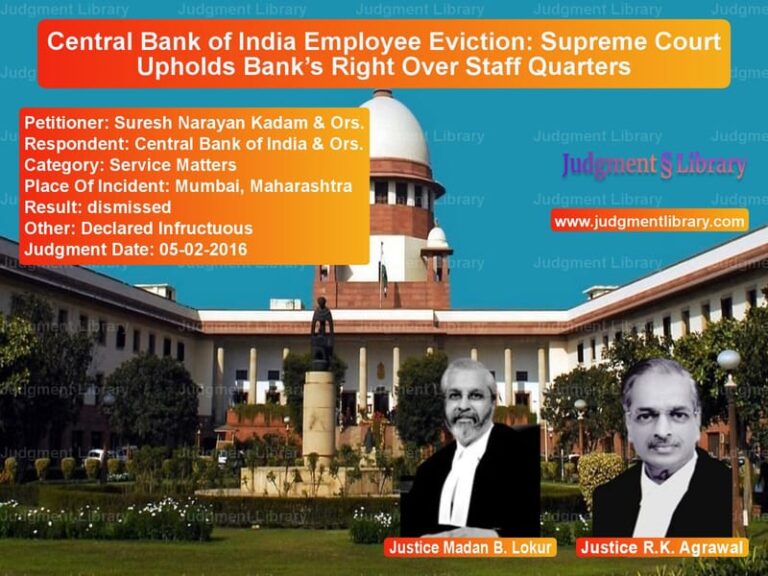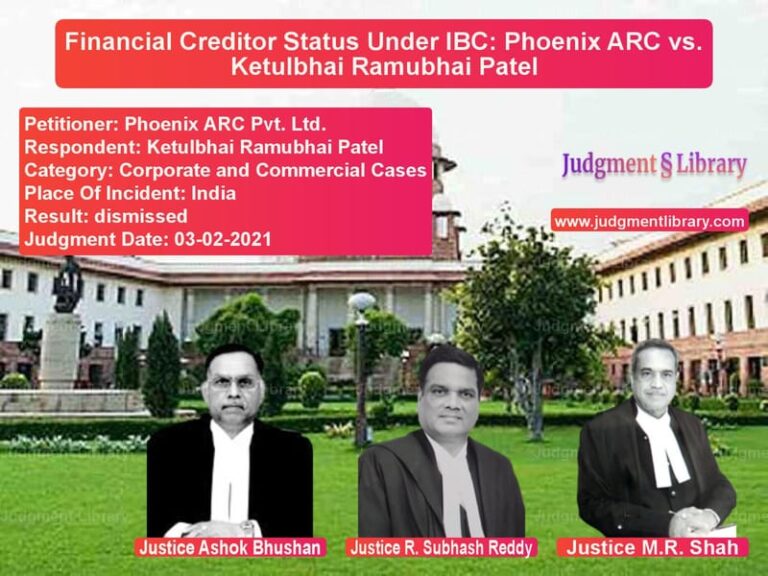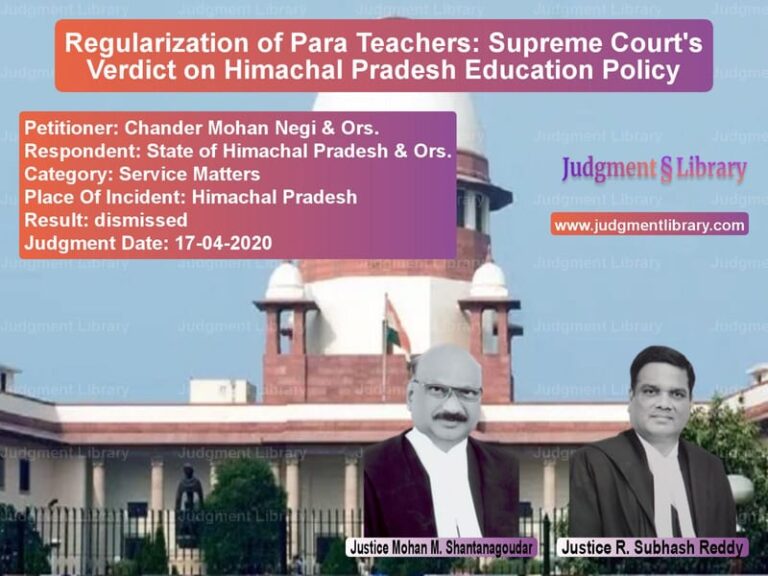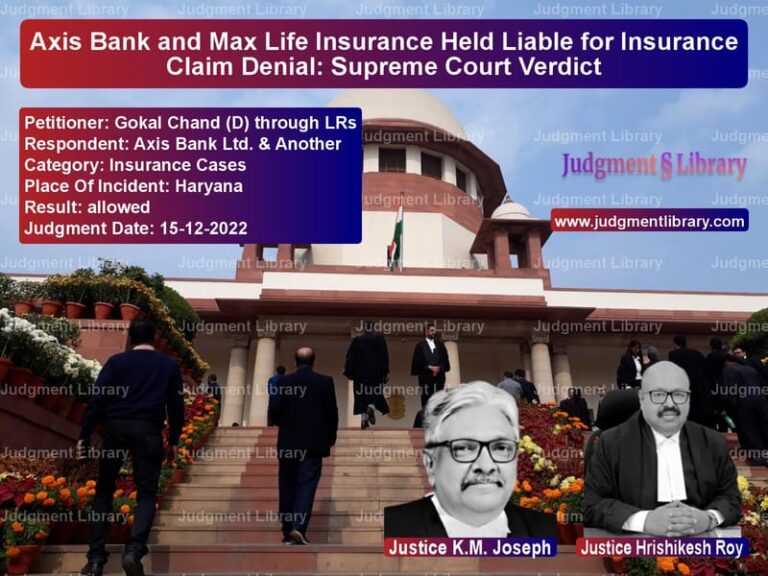Supreme Court Refers Judicial Appointment Dispute to Constitution Bench: Key Questions on District Judge Recruitment
In a significant development that could reshape the career progression pathways for judicial officers across India, the Supreme Court has referred a crucial constitutional question to a five-judge Constitution Bench. The case centers on whether judicial officers who previously practiced as advocates for seven years before joining the subordinate judiciary can compete for district judge positions reserved for direct recruitment from the Bar. This decision touches upon the fundamental structure of judicial appointments and has far-reaching implications for thousands of judicial officers nationwide.
The legal controversy originated from a February 2020 judgment in the case of Dheeraj Mor v. Hon’ble High Court of Delhi, where a three-judge bench ruled that members of the state judicial service could only be appointed as district judges through promotion or Limited Departmental Competitive Examination (LDCE). The court had held that under Article 233(2) of the Constitution, advocates with seven years of practice could be appointed as district judges by direct recruitment only if they were not already in judicial service. This interpretation effectively barred judicial officers from competing for positions reserved for direct recruitment from the Bar, even if they had substantial prior legal practice experience.
The Constitutional Question
The current batch of petitions, comprising numerous review petitions, writ petitions, and special leave petitions, essentially seeks reconsideration of this interpretation. The petitioners argue that judicial officers who had seven years of experience at the Bar before joining the judicial service should be eligible for appointment as district judges through direct recruitment under Article 233(2). This raises fundamental questions about the interpretation of constitutional provisions governing judicial appointments.
The legal teams representing various parties presented compelling arguments before the Supreme Court. Senior counsel supporting the reference to a Constitution Bench, including Shri Jayant Bhushan, Shri Dama Seshadri Naidu, Dr. Menaka Guruswamy, and others, argued that “the question with regard to interpretation of Article 233(2) of the Constitution requires consideration by a Constitution Bench of this Court.”
They pointed to the case of G. Sabitha and others v. High Court of Judicature at Hyderabad, where the court had previously acknowledged that “the issue as to ‘whether the judicial officer who has already completed seven years in Bar being recruited for subordinate judicial services would be entitled for appointment as Additional District Judge against the Bar vacancy is pending consideration before the Constitution Bench.'”
The counsel emphasized that despite this acknowledgment, the matter in Dheeraj Mor (JUR) was ultimately decided by a three-judge bench rather than a Constitution Bench. They argued that “in view of the issue involving interpretation of Article 233(2) and the language used in Article 145(3) of the Constitution, the matter ought to have been referred to a Bench consisting of five learned Judges and could not have been referred to a Bench of three learned Judges.”
Opposing Views and Legal Precedents
On the other side, senior counsel including Shri Nidhesh Gupta, Shri C.U. Singh, Shri Jaideep Gupta, and others opposed the reference to a Constitution Bench. They contended that “the JUR only culls out the principle laid down by this Court in various decisions including the Constitution Bench judgments of this Court in the cases of Rameshwar Dayal v. the State of Punjab and Others and Chandra Mohan v. State of Uttar Pradesh and Others.”
They argued that since the Chief Justice of India had referred the matter to a three-judge bench in the first place, and since that bench had relied on established Constitution Bench precedents, a fresh reference was unnecessary.
The Supreme Court’s Analysis
The Supreme Court bench comprising Chief Justice B.R. Gavai and Justices K. Vinod Chandran and N.V. Anjaria conducted a thorough examination of the constitutional provisions and previous precedents. The court noted that while the Constitution Bench in Rameshwar Dayal had considered whether practice in the Lahore High Court before partition could be counted toward the seven-year requirement, and the Chandra Mohan case had addressed whether persons from non-judicial services could be appointed as district judges, “the questions that came up for consideration before both the Constitution Benches in the cases of Rameshwar Dayal (supra) and Chandra Mohan (supra) are different from the one which arises for consideration in the present matters.”
The court placed significant emphasis on Article 145(3) of the Constitution, which states that “The minimum number of Judges who are to sit for the purpose of deciding any case involving a substantial question of law as to the interpretation of this Constitution or for the purpose of hearing any Reference under Article 143 shall be five.”
Referring to its earlier decision in Janhit Abhigan v. Union of India and Others, the court noted that “It is clear from the language of Article 145(3) of the Constitution and Order XXXVIII Rule 1(1) of the Supreme Court Rules, 2013, the matters which involve substantial questions of law as to interpretation of constitutional provisions they are required to be heard by a Bench of five Judges.”
The court expressed its considered view that “Ordinarily, in view of the question involving interpretation of Article 233(2), the matter ought to have been placed before a Bench of five learned Judges. However, it appears that the same was placed before the Bench of three learned Judges and the JUR was delivered.”
The Core Constitutional Issues
After examining the text of Article 233(2), which states that “A person not already in the service of the Union or of the State shall only be eligible to be appointed a district judge if he has been for not less than seven years an advocate or a pleader and is recommended by the High Court for appointment,” the court identified two substantial questions of law requiring Constitution Bench consideration.
The first question is “Whether a judicial officer who has already completed seven years in Bar being recruited for subordinate judicial services would be entitled for appointment as Additional District Judge against the Bar vacancy?”
The second question addresses the timing of eligibility determination: “Whether the eligibility for appointment as a District Judge is to be seen only at the time of appointment or at the time of application or both?”
The court concluded that “We are, therefore, of the considered view that the issues involved in the present batch of petitions ought to have been decided by a Constitution Bench of not less than five Judges.”
The Referral Order
In its final order, the Supreme Court directed that “We refer the aforesaid issues for consideration of a Constitution Bench of five Judges of this Court” and instructed the Registry to “place the matter before the Chief Justice of India on the administrative side for obtaining appropriate orders.”
The court also clarified that “This batch of petitions would be heard after the Reference is decided by the Constitution Bench,” effectively putting all related matters on hold until the larger constitutional questions are resolved.
Broader Implications
This referral to a Constitution Bench has significant implications for India’s judicial system. First, it acknowledges that the interpretation of Article 233(2) involves substantial questions of constitutional law that require authoritative determination by the highest judicial forum. Second, the outcome will directly impact the career progression opportunities for judicial officers who transitioned from legal practice to the judiciary.
The decision also highlights the Supreme Court’s commitment to proper constitutional interpretation procedures. By insisting that substantial questions of constitutional interpretation must be decided by benches of appropriate strength, the court reinforces the importance of procedural rigor in constitutional adjudication.
Furthermore, the case touches upon the broader philosophy of judicial appointments – whether the Constitution envisages completely separate career tracks for judicial officers and practicing advocates, or whether it permits some mobility between these tracks based on prior experience and qualifications.
The Constitution Bench’s eventual ruling will not only resolve the immediate controversy but also provide clarity on the constitutional framework for judicial appointments, potentially influencing future reforms in the judicial services recruitment system across states.
This case represents another chapter in the ongoing evolution of India’s judicial appointments jurisprudence, balancing the need for judicial independence with the aspiration for a more flexible and merit-based system that recognizes the diverse experiences and qualifications of legal professionals.
Petitioner Name: Rejanish K.V.Respondent Name: K. Deepa and Others.Judgment By: Justice B.R. Gavai, Justice K. Vinod Chandran, Justice N.V. Anjaria.Judgment Date: 12-08-2025.Result: allowed.
Don’t miss out on the full details! Download the complete judgment in PDF format below and gain valuable insights instantly!
Download Judgment: rejanish-k.v-vs-k.-deepa-and-others-supreme-court-of-india-judgment-dated-12-08-2025.pdf
Directly Download Judgment: Directly download this Judgment
See all petitions in Constitution Interpretation
See all petitions in Fundamental Rights
See all petitions in Separation of Powers
See all petitions in Public Interest Litigation
See all petitions in Legislative Powers
See all petitions in Employment Disputes
See all petitions in Public Sector Employees
See all petitions in Judgment by B R Gavai
See all petitions in Judgment by K. Vinod Chandran
See all petitions in Judgment by N.V. Anjaria
See all petitions in allowed
See all petitions in Remanded
See all petitions in supreme court of India judgments August 2025
See all petitions in 2025 judgments
See all posts in Constitutional Cases Category
See all allowed petitions in Constitutional Cases Category
See all Dismissed petitions in Constitutional Cases Category
See all partially allowed petitions in Constitutional Cases Category

